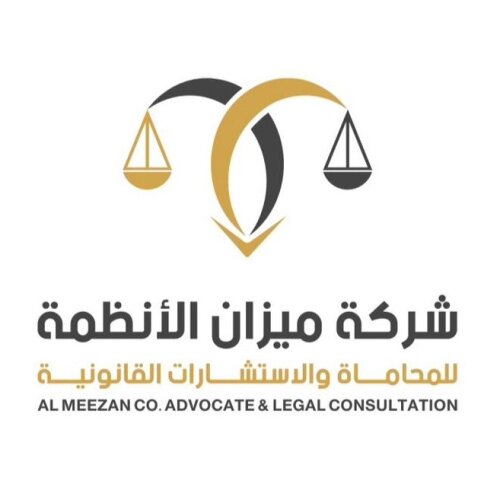Best Civil & Human Rights Lawyers in Saudi Arabia
Share your needs with us, get contacted by law firms.
Free. Takes 2 min.
Or refine your search by selecting a city:
List of the best lawyers in Saudi Arabia
About Civil & Human Rights Law in Saudi Arabia
Civil and Human Rights laws in Saudi Arabia are shaped significantly by the country's adherence to Islamic law (Sharia). The Saudi legal system combines regulations derived from both royal decrees and religious mandates, emphasizing moral and social standards derived from Islamic teachings. Efforts towards modernizing and reforming aspects of civil and human rights are ongoing, focusing on enhancing freedoms and protections in various sectors like employment, gender equality, and personal freedoms within the cultural and religious contexts of the nation.
Why You May Need a Lawyer
Individuals may need a lawyer in the field of civil and human rights in Saudi Arabia for numerous reasons, including facing legal issues related to employment rights, personal status laws, property rights, or navigating complex family law scenarios. Lawyers can also be crucial in situations where individuals feel their fundamental human rights have been violated, such as cases involving discrimination, freedom of expression, or unequal treatment under the law. Expert legal advice can help clients navigate the intricacies of the Saudi legal system, ensuring that their rights are protected and that all legal procedures are followed accurately.
Local Laws Overview
Key aspects of laws related to civil and human rights in Saudi Arabia include:
- Labor Rights: Recent reforms have led to improvements in employee conditions, including regulations on working hours, wages, and non-discriminatory practices.
- Personal Status Law: Changes have been made to better support women's rights, including issues pertaining to marriage, divorce, and child custody.
- Criminal Justice: Saudi Arabia is known for strict enforcement of laws, with criminal procedures rooted in Sharia, but recent shifts aim to increase transparency and fairness.
- Freedom of Movement and Expression: There are constraints, but progressive changes are ongoing to balance traditional values with global standards.
- Non-discrimination: Article 8 of the Basic Law promotes equality, although interpretations can vary based on cultural and religious considerations.
Frequently Asked Questions
What rights do workers have in Saudi Arabia?
Workers have the right to fair wages, safe working conditions, and benefits such as paid vacation and health care, under the Saudi Labor Law.
Are women’s rights improving in Saudi Arabia?
Yes, significant reforms have been made, including women being allowed to drive and increased opportunities in the workforce and government positions.
Can foreigners own property in Saudi Arabia?
Foreigners can own property but generally require special approval, particularly outside areas designated for foreign ownership.
What should someone do if they face discrimination?
Individuals can file a complaint with the relevant authorities or seek legal advice to ensure their rights are addressed and upheld.
Are there limitations on freedom of speech?
Yes, freedom of speech is limited, primarily in matters that could contradict Islamic values, but there are ongoing efforts to expand open discourse within these frameworks.
What are the rights of foreign workers regarding contracts?
Foreign workers are entitled to written contracts detailing employment terms, rights, and obligations, with legal recourse available for breaches.
Do legal reforms affect freedom of religion?
The nation is primarily Islamic with limited religious freedoms; however, there is some tolerance for private worship by non-Muslims.
How does Saudi law address child custody issues?
Custody decisions are generally based on Sharia principles, but legal advocacy can support fair and balanced outcomes favoring the child's best interests.
Can expatriates seek legal recourse in human rights issues?
Yes, expatriates have the right to legal representation and can challenge rights violations through legal processes designed to handle such matters.
What is the legal process for addressing a grievance?
The process usually involves filing a complaint with relevant authorities or pursuing the matter through the Saudi judicial system with legal assistance.
Additional Resources
For more assistance, consider reaching out to local branches of international Human Rights organizations, the Saudi Human Rights Commission, or seeking guidance from embassies and consulates. Legal firms specializing in human rights can offer expert advice grounded in the local legal context.
Next Steps
If you need legal assistance in civil and human rights, it is advisable to start by consulting with a qualified attorney who specializes in this field. This ensures that you receive knowledgeable advice tailored to your particular situation. Schedule consultations, prepare documentation related to your case, and discuss potential strategies to address your legal concerns effectively. Staying informed about ongoing legal reforms and precedents is beneficial in understanding the dynamics at play.
Lawzana helps you find the best lawyers and law firms in Saudi Arabia through a curated and pre-screened list of qualified legal professionals. Our platform offers rankings and detailed profiles of attorneys and law firms, allowing you to compare based on practice areas, including Civil & Human Rights, experience, and client feedback.
Each profile includes a description of the firm's areas of practice, client reviews, team members and partners, year of establishment, spoken languages, office locations, contact information, social media presence, and any published articles or resources. Most firms on our platform speak English and are experienced in both local and international legal matters.
Get a quote from top-rated law firms in Saudi Arabia — quickly, securely, and without unnecessary hassle.
Disclaimer:
The information provided on this page is for general informational purposes only and does not constitute legal advice. While we strive to ensure the accuracy and relevance of the content, legal information may change over time, and interpretations of the law can vary. You should always consult with a qualified legal professional for advice specific to your situation.
We disclaim all liability for actions taken or not taken based on the content of this page. If you believe any information is incorrect or outdated, please contact us, and we will review and update it where appropriate.
Browse civil & human rights law firms by service in Saudi Arabia
Saudi Arabia Attorneys in related practice areas.
Browse civil & human rights law firms by city in Saudi Arabia
Refine your search by selecting a city.















